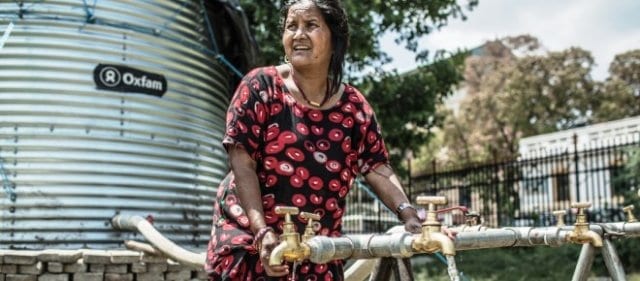Survivors of Nepal’s massive earthquake are in a race against time to secure shelter and adequate sanitation before the monsoon rains begin in early June.

Survivors of Nepal’s massive earthquake are in a race against time to secure shelter and adequate sanitation before the monsoon rains begin in early June.
Tens of thousands of people have seen their homes flattened or damaged to such an extent that it is not safe for them to return.
Oxfam has been working with the government of Nepal and partners to provide shelter, toilets and clean water in seven of the worst-affected districts. All relief efforts must be stepped up immediately to reach vulnerable people before the rains set in.
There is a danger of waterborne diseases in Nepal in the coming months. In rural areas, a shortage of toilets is forcing many people to have to defecate in the open. Damage to water pipes means that some people are resorting to drinking untreated water.
Rachael Le Mesurier, Oxfam New Zealand’s Executive Director, said “There is a huge risk of waterborne disease in Nepal – a country where cholera is already endemic. Oxfam has been quick to deliver aid to desperate local communities and is building toilets and delivering clean water and hygiene kits to thousands of people”.
There is also a chronic lack of adequate housing. The 7.8-magnitude earthquake and a series of powerful aftershocks damaged up to 90% of the houses in some areas. Families are living under tarpaulins and materials salvaged from the rubble.
Cecilia Keizer, Oxfam country director in Nepal said “The scale of this disaster is only now becoming apparent. There were so many people already suffering before the earthquake and I am particularly concerned about single women, the elderly and lower-caste members of society in areas that can only be reached by foot”.
Oxfam has announced relief plans to reach 430,000 people as quickly as possible with a NZ$42 million programme, focusing largely on water and sanitation work. In the first week since the earthquake it has secured around NZ$29 million mainly from the generosity of publics around the world but desperately needs more funds to continue this vital work and with the rainy season just around the corner, there is no time to waste. Nepal is one of the world’s poorest countries and it is not equipped to deal with this crisis alone.





